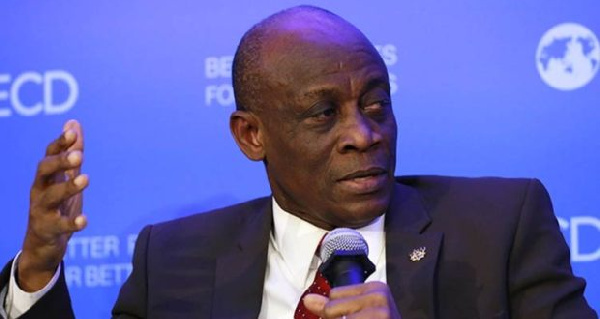Former Finance Minister, Seth Terkper says the National Democratic Congress (NDC) administration of 2013-2016 had an effective plan to deal with the banking sector crisis.
This plan, he argues, would rather have saved most of the indigenous banks instead of collapsing them.
The Bank of Ghana (BoG) revoked the licenses of seven indigenous banks between August 2017 and January 2019.
The BOG said these banks had been mismanaged, leaving depositors at the risk of losing savings. It, therefore, stepped in to save the situation.
Government has been criticised for opting to collapse the banks after Finance Minister Ken Ofori-Atta revealed that it cost the taxpayer some GH¢21 billion to ensure the safety of depositors funds.
The former Finance Minister, Seth Terkper on Monday addressed a lecture organized by the NDC’s Professionals Forum.
He argued that the NDC administration would have handled the situation differently.
Mr Terkper said the NDC administration undertook an asset quality review of the banks, which gave it a sense of the state of the banks.
He admits some malfeasance was discovered, but the appropriate approach would have been to slowly sell the banks' assets while trying to keep most of the banks operational.
He further stated that the NPP government did not need to borrow to deal with the situation. He claimed the NDC government, through the Energy Sector Levy Act, left some GH¢43 billion available to the government.
“I don’t think we should accept this narrative that we left the current administration to go and borrow to resolve the banking sector crisis. So what happened to the 43 billion cedis? Couldn’t it be used to restructure?” Mr Terkper quizzed.
On the impact of Covid-19 on the economy, the former Minister said the pandemic cannot be blamed entirely for the state of affairs.
The former Minister insisted the current administration has received the most support for a crisis in the nation's history.
“IMF $1 billion, Bank of Ghana $1.7 billion, World Bank, African Development Bank and others put together $500 to $600 million and counting. A lot of resources have flowed in, and so that is where we must dig deeper. Covid is painful, but a lot of resources have flowed.”
Latest Stories
-
DAMC, Free Food Company, to distribute 10,000 packs of food to street kids
35 minutes -
Kwame Boafo Akuffo: Court ruling on re-collation flawed
54 minutes -
Samuel Yaw Adusei: The strategist behind NDC’s electoral security in Ashanti region
57 minutes -
I’m confident posterity will judge my performance well – Akufo-Addo
1 hour -
Syria’s minorities seek security as country charts new future
2 hours -
Prof. Nana Aba Appiah Amfo re-appointed as Vice-Chancellor of the University of Ghana
2 hours -
German police probe market attack security and warnings
2 hours -
Grief and anger in Magdeburg after Christmas market attack
2 hours -
Baltasar Coin becomes first Ghanaian meme coin to hit DEX Screener at $100K market cap
3 hours -
EC blames re-collation of disputed results on widespread lawlessness by party supporters
3 hours -
Top 20 Ghanaian songs released in 2024
3 hours -
Beating Messi’s Inter Miami to MLS Cup feels amazing – Joseph Paintsil
4 hours -
NDC administration will reverse all ‘last-minute’ gov’t employee promotions – Asiedu Nketiah
4 hours -
Kudus sights ‘authority and kingship’ for elephant stool celebration
4 hours -
We’ll embrace cutting-edge technologies to address emerging healthcare needs – Prof. Antwi-Kusi
4 hours

